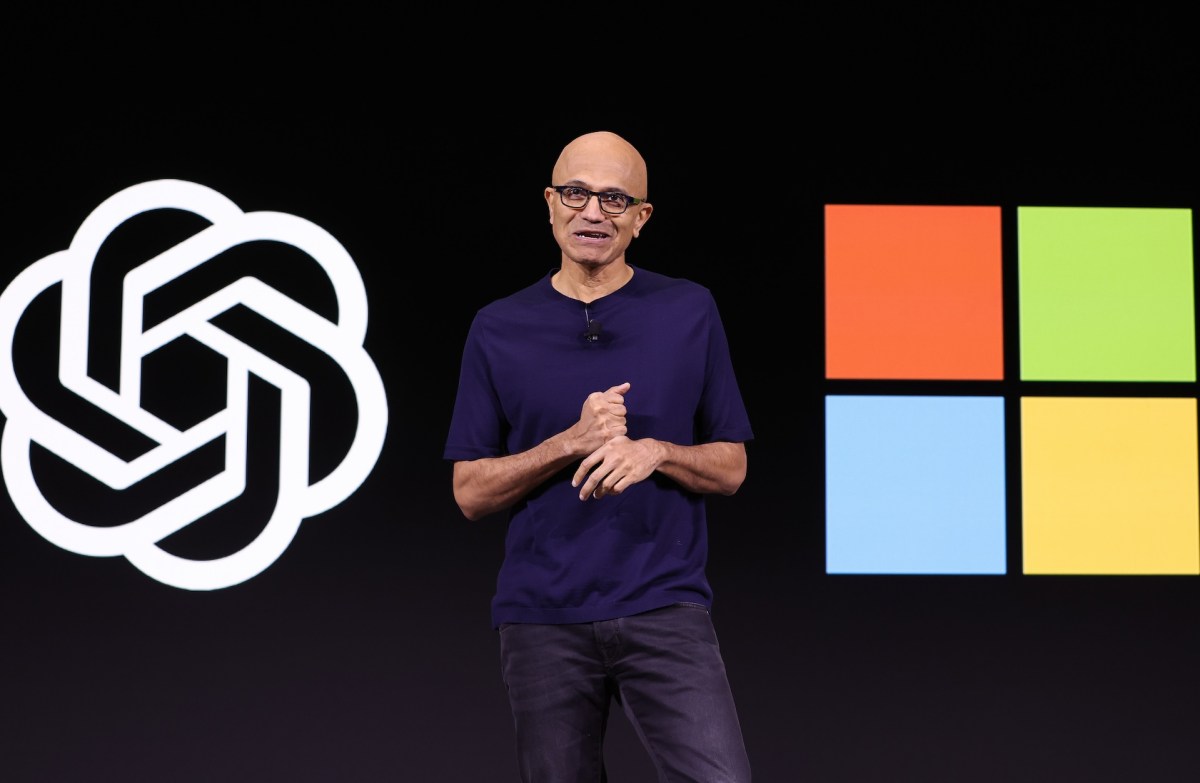OpenAI announced Thursday it reached a non-binding agreement with Microsoft, its largest investor, on a revised partnership that would allow the startup to convert its for-profit arm into a public benefit corporation (PBC).
The transition, should it be cleared by state regulators, could allow OpenAI to raise additional capital from investors and, eventually, become a public company.
In a blog post, OpenAI Board Chairman Bret Taylor said under the non-binding agreement with Microsoft, OpenAI’s nonprofit would continue to exist and retain control over the startup’s operations. OpenAI’s nonprofit would obtain a stake in the company’s PBC worth upwards of $100 billion, Taylor said. Further terms of the deal were not disclosed.
“Microsoft and OpenAI have signed a non-binding memorandum of understanding (MOU) for the next phase of our partnership,” the companies said in a joint statement. MOUs are not legally binding, but aim to document each party’s expectations and intent.
“We are actively working to finalize contractual terms in a definitive agreement,” the joint statement added.
The development seems to mark an end to months of negotiations between OpenAI and Microsoft over the ChatGPT-maker’s transition plans. Unlike most startups, OpenAI is controlled by a nonprofit board. The unusual structure allowed for OpenAI board members to fire CEO Sam Altman in 2023. Altman was reinstated days later, and many of the board members resigned. However, the same governance structure remains in place today.
Under their current deal, Microsoft is supposed to get preferred access to OpenAI’s technology and be the startup’s primary provider of cloud services. However, ChatGPT is a much larger business than when Microsoft first invested in the startup back in 2019, and OpenAI has reportedly sought to loosen the cloud provider’s control as part of these negotiations.
In the last year, OpenAI has struck a series of deals that would allow it to be less dependent on Microsoft. OpenAI recently signed a contract to spend $300 billion with cloud provider Oracle over a five-year period starting in 2027, according to the Wall Street Journal. OpenAI has also partnered with the Japanese conglomerate SoftBank on its Stargate data center project.
Taylor says OpenAI and Microsoft will “continue to work with the California and Delaware Attorneys General” on the transition plan, implying the deal still needs a stamp of approval from regulators before it can take effect.
Representatives for California and Delaware attorneys general did not immediately respond to TechCrunch’s request for comment.
Tensions between OpenAI and Microsoft over these negotiations reportedly reached a boiling point in recent months. The Wall Street Journal reported Microsoft wanted control of technology owned by Windsurf, the AI coding startup that OpenAI had planned to acquire earlier this year, while OpenAI fought to keep the startup’s IP independent. However, the deal fell through, and Windsurf’s founders were hired by Google, and the rest of its staff was acquired by another startup, Cognition.
In Elon Musk’s lawsuit against OpenAI — which at its core accuses Sam Altman, Greg Brockman, and the company of abandoning its nonprofit mission — the startup’s for-profit transition is also a major flash point. Lawyers representing Musk in the lawsuit have tried to surface information related to Microsoft and OpenAI’s negotiations over the transition.
Musk also submitted an unsolicited $97 billion takeover bid for OpenAI earlier this year, which the startup’s board promptly rejected. However, legal experts noted at the time that Musk’s bid may have raised the price of OpenAI’s nonprofit stake.
Notably, the nonprofit’s stake in OpenAI PBC, under this agreement, is larger than what Musk offered.
In recent months, nonprofits such as Encode and The Midas Project have taken issue with OpenAI’s for-profit transition, arguing that it threatens the startup’s mission to develop AGI that benefits humanity. OpenAI has responded by sending subpoenas to some of these groups, claiming the nonprofits are funded by its competitors — namely, Musk and Meta CEO Mark Zuckerberg. Encode and The Midas Project deny the claims.


